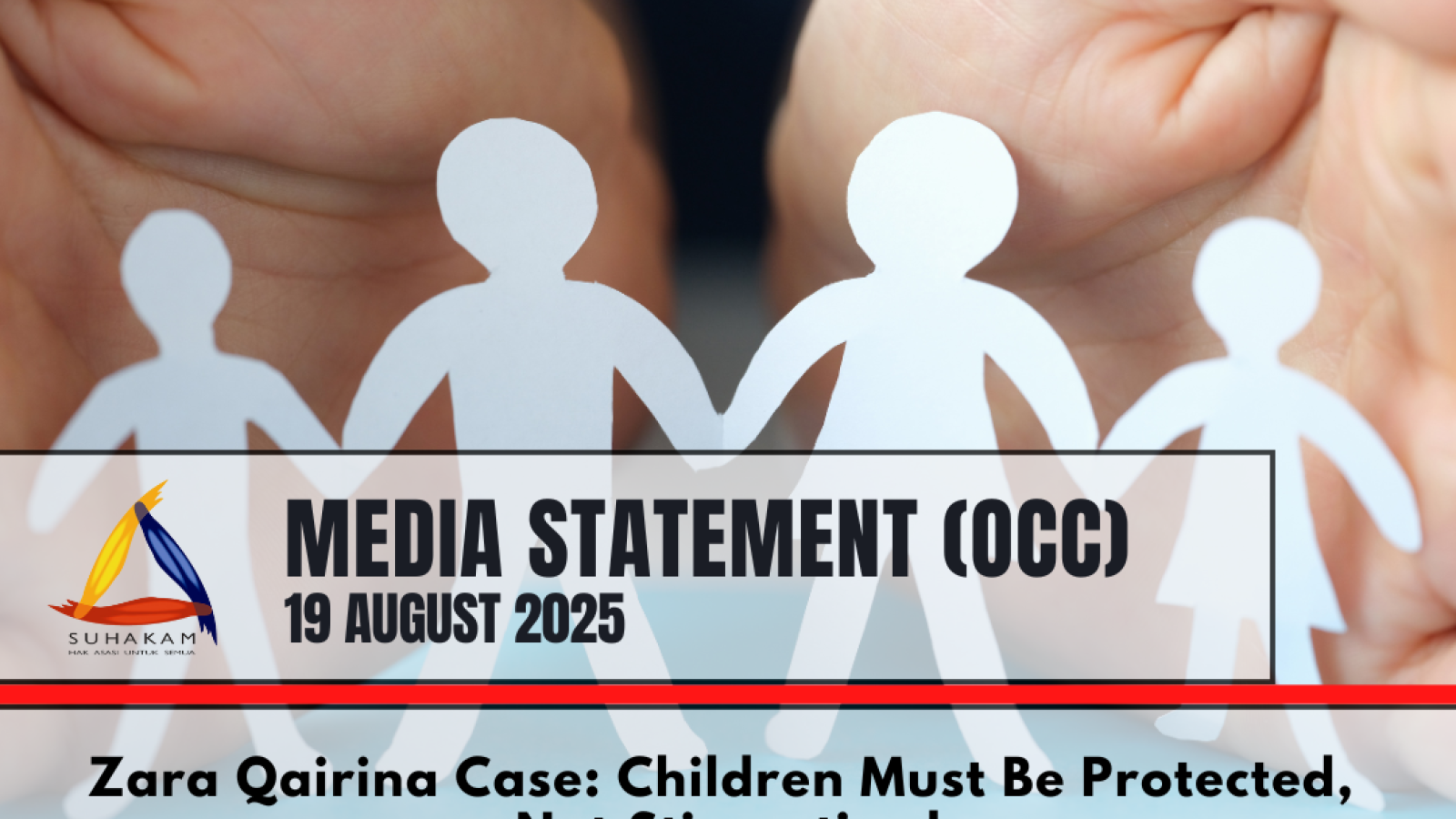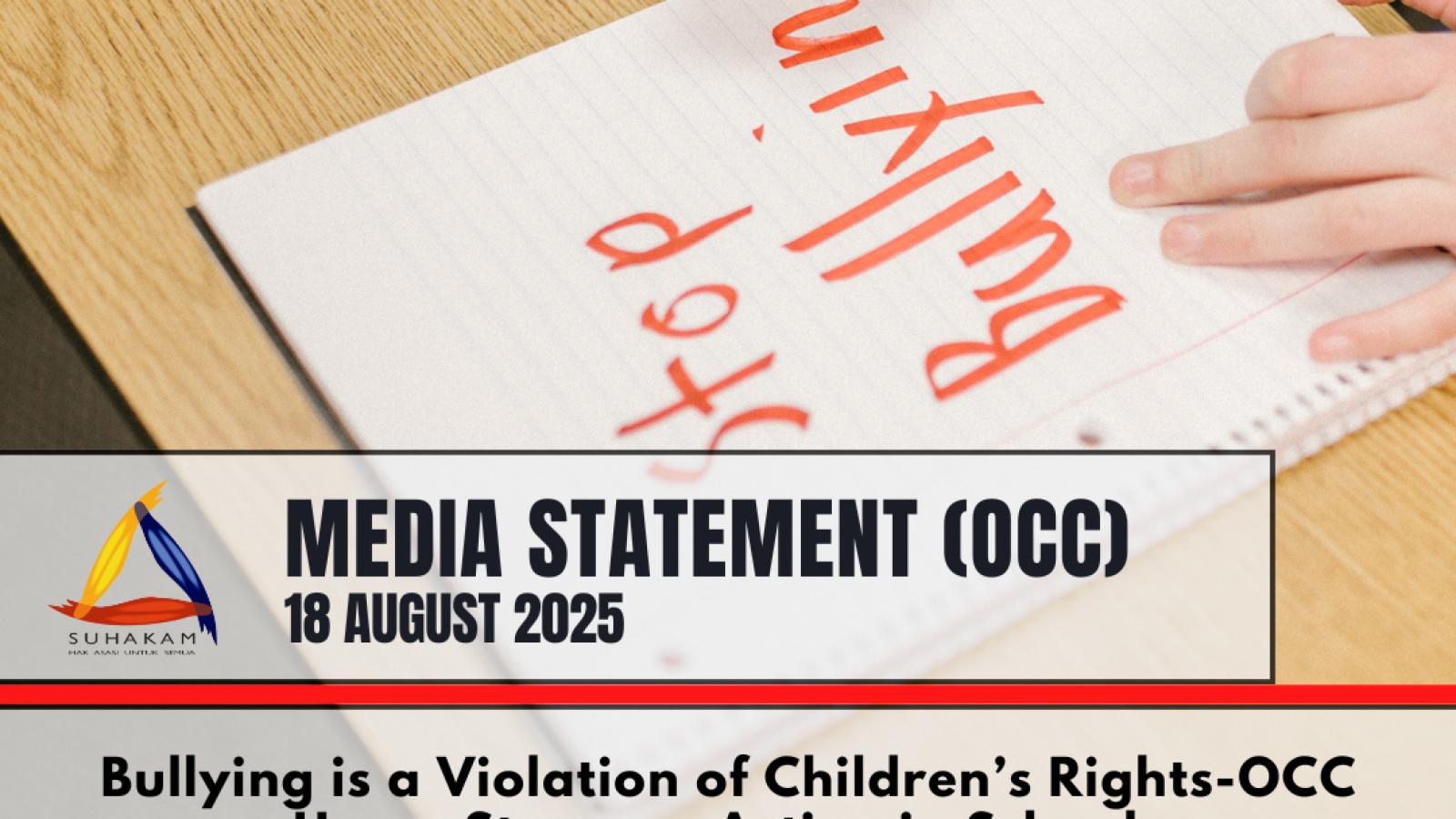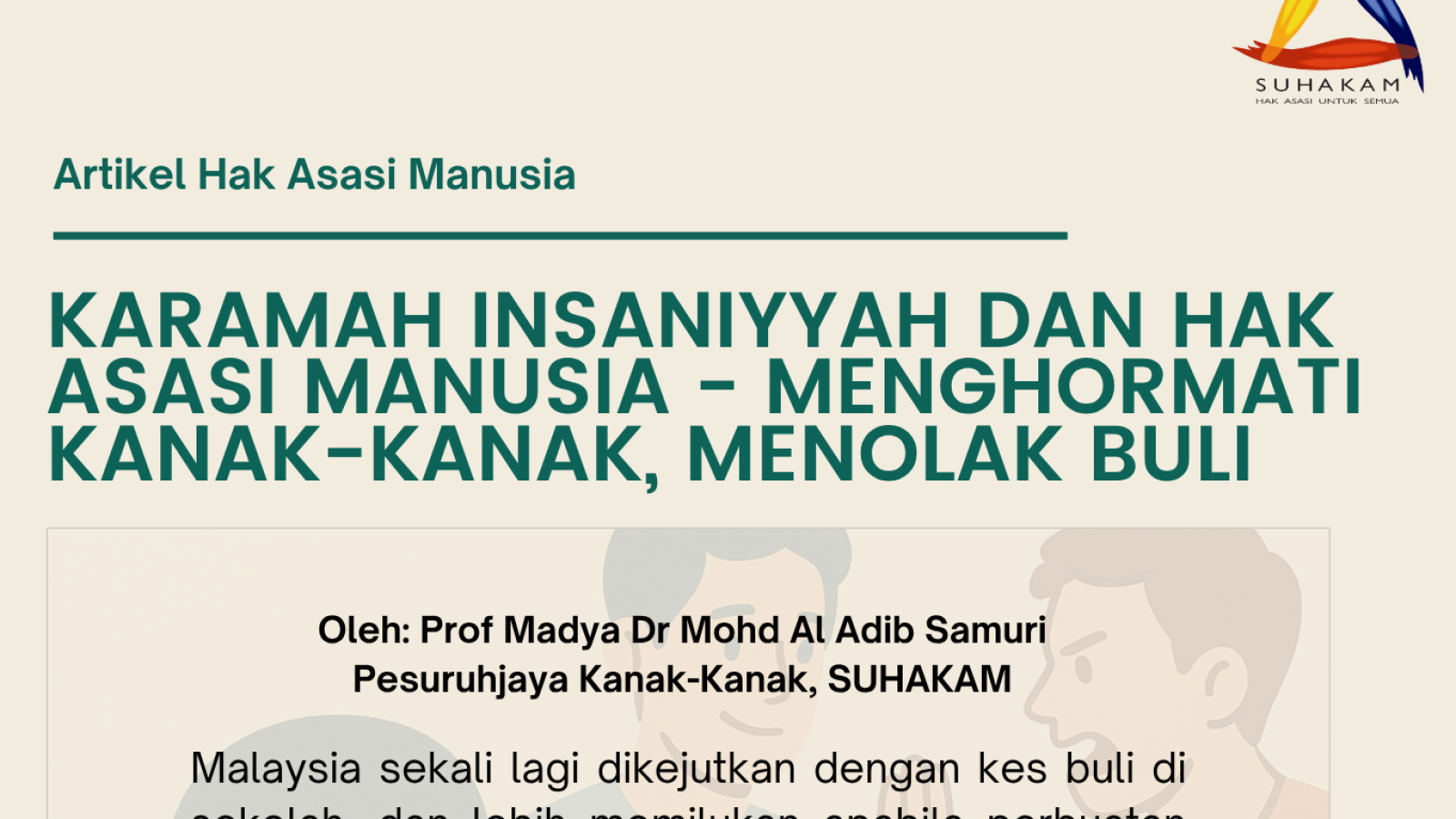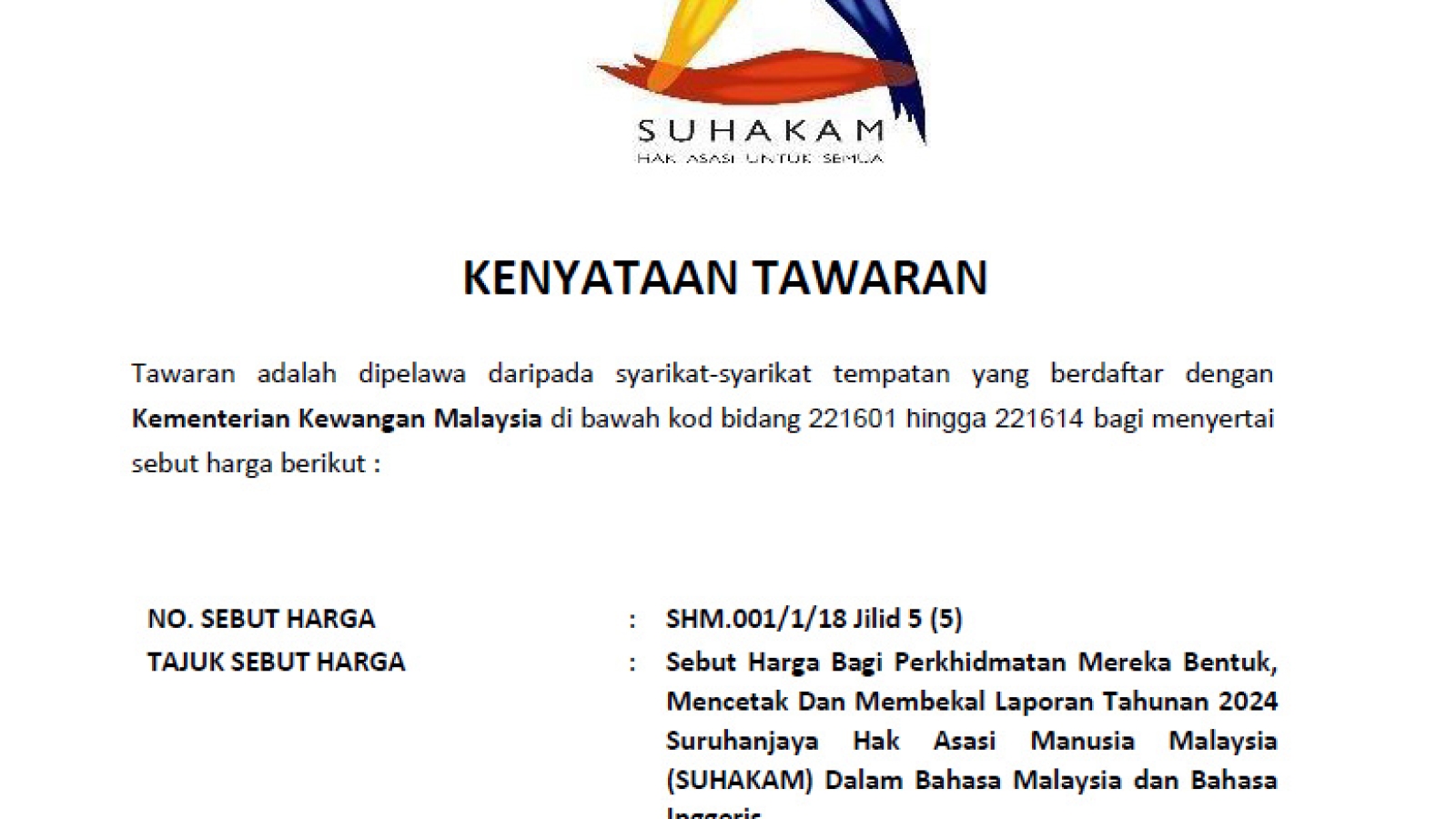Oleh: Prof Madya Dr Mohd Al Adib Samuri
Pesuruhjaya Kanak-Kanak, SUHAKAM
Pensyarah di Fakulti Pengajian Islam, Universiti Kebangsaan Malaysia
Malaysia sekali lagi dikejutkan dengan kes buli di sekolah, dan lebih memilukan apabila perbuatan tersebut mengakibatkan kehilangan nyawa.
Buli bukan sahaja melibatkan fizikal dan lisan, tetapi turut merangkumi bentuk psikologi dan sosial. Ini termasuklah ejekan, pengasingan daripada rakan sebaya, serta penyebaran aib melalui media sosial.
Buli juga menyebabkan trauma yang mendalam pada diri kanak-kanak yang menjadi mangsa, dan mungkin menjadikan dirinya terasing daripada persekitaran sosialnya.
Walaupun sering dianggap sekadar ‘gurauan’ antara rakan sebaya, buli sebenarnya merupakan satu bentuk penganiayaan, kezaliman, dan penghinaan yang jelas dilarang dalam agama.
Kajian menunjukkan bahawa buli dalam kalangan kanak-kanak memberi kesan langsung terhadap kesihatan mental, pencapaian akademik, dan pembentukan harga diri mangsa.
Perbuatan ini jelas melanggar hak kanak-kanak seperti dalam Konvensyen Mengenai Hak Kanak-Kanak (CRC), yang seiring dengan Akta Kanak-Kanak 2001 bagi melindungi semua kanak-kanak di Malaysia.
Antara hak yang terjejas termasuklah hak untuk hidup dalam keadaan selamat, bebas daripada penderaan dan kezaliman, serta hak untuk dihormati maruahnya.
Namun begitu, apa yang jarang dibincangkan dalam wacana awam ialah bagaimana al-Quran secara konsisten menolak sebarang bentuk penganiayaan, kezaliman, penghinaan dan pencabulan maruah sesama manusia, termasuk terhadap kanak-kanak.
Nilai akhlak yang digariskan oleh al-Quran ini boleh membawa kebaikan kepada seluruh masyarakat, tanpa mengira latar belakang bangsa dan agama mereka.
Dalil al-Quran yang Menolak Buli
Walaupun istilah ‘buli’ tidak disebut secara literal dalam al-Quran, terdapat banyak ayat yang boleh dijadikan asas untuk menolak perbuatan buli seperti ejekan, penghinaan, kezaliman, cercaan, dan penyebaran aib.
Pertama, al-Quran jelas melarang ejekan, penghinaan dan gelaran yang menjatuhkan maruah. Dalam Surah al-Hujurat ayat 11, Allah berfirman:
“Wahai orang-orang yang beriman! Janganlah sesuatu puak (dari kaum lelaki) mencemuh dan merendah-rendahkan puak lelaki yang lain, (kerana) boleh jadi puak yang dicemuhkan itu lebih baik daripada mereka; …dan janganlah setengah kamu menyatakan keaiban setengahnya yang lain; dan janganlah pula kamu panggil-memanggil antara satu dengan yang lain dengan gelaran yang buruk.”
al-Tabari dalam Jami’ al-Bayan fi Tafsir al-Quran mengatakan bahawa larangan ini merujuk kepada gelaran-gelaran yang dibenci oleh orang yang digelar. Sama ada ia berdasarkan latar belakangnya, keaibannya, atau apa sahaja panggilan yang mencetuskan kemarahan.
Kedua, al-Quran melarang penyebaran aib dan fitnah yang sering menjadi elemen utama dalam buli siber. Firman Allah dalam Surah al-Nur ayat 19:
“Sesungguhnya orang yang suka agar perbuatan keji itu tersebar di kalangan orang yang beriman, bagi mereka azab yang pedih di dunia dan di akhirat.”
Menurut Ibn Kathir dalam Tafsir al-Quran al-Azhim, ayat ini merupakan teguran kepada sesiapa yang apabila mendengar sesuatu perkara yang buruk, terus menyebarkannya kepada orang lain. Sedangkan sepatutnya, perkara buruk itu tidak perlu diperbesar-besarkan atau disebarkan.
Dalam era media sosial, sebahagian pelajar sekolah sudah terdedah kepada budaya merakam, menyebar, dan menjadikan aib atau penderitaan rakan sebagai bahan hiburan.
Ini bukan sahaja melanggar hak peribadi kanak-kanak lain, tetapi termasuk dalam kategori perbuatan keji yang ditegah oleh al-Quran.
Ketiga, al-Quran juga mengharamkan perbuatan menyakiti orang lain, sama ada melalui perbuatan mahupun kata-kata.
Perbuatan buli yang menyakitkan emosi atau fizikal pelajar lain dengan sengaja adalah termasuk dalam bentuk kezaliman yang ditegah oleh al-Quran sebagaimana dalam Surah al-Ahzab ayat 58:
“Dan orang yang menyakiti orang mukmin lelaki dan perempuan tanpa kesalahan yang mereka lakukan, maka sesungguhnya mereka telah memikul kesalahan menuduh secara dusta, dan berbuat dosa yang amat nyata.”
al-Qurtubi dalam al-Jami’ li al-Ahkam al-Quran menyatakan bahawa antara bentuk perbuatan yang menyakiti orang lain ialah dengan memperlekehkan keturunannya, merendahkan pekerjaan yang dilakukannya, atau menyebut sesuatu yang menyakitkan hatinya apabila didengar.
Beliau menegaskan bahawa menyakiti orang lain adalah perbuatan yang diharamkan dalam Islam.
Hormati Kanak-kanak
Kanak-kanak adalah individu yang sedang membesar. Seperti mana orang dewasa, mereka juga mempunyai hak, martabat, maruah dan kehormatan yang mesti dijaga.
Tindakan membuli menjejaskan karāmah insāniyyah atau kemuliaan insan yang ada pada diri seseorang. Allah berfirman dalam Surah al-Isra’ ayat 70:
“Dan sesungguhnya Kami telah memuliakan anak-anak Adam…”
Kemuliaan ini termasuk hak untuk dilayan dengan hormat, dihargai, dan bebas daripada penganiayaan oleh rakan sebaya.
Apabila buli dianggap “lumrah sekolah” atau “budaya asrama”, ia bukan sahaja merendahkan nilai insan pada diri kanak-kanak, tetapi turut mencerminkan kegagalan masyarakat dalam mempertahankan hak kanak-kanak.
Pendekatan
Pendekatan menangani buli tidak boleh bersifat reaktif atau terhad kepada tindakan disiplin dan hukuman semata-mata.
Pendekatan hendaklah bersifat menyeluruh, berfokus kepada hak kanak-kanak dan kepentingan terbaik mereka yang mesti diutamakan.
Ia mesti berakar pada pendidikan nilai dan akhlak, penerapan kesedaran agama, penghormatan terhadap hak orang lain, dan pembinaan komuniti sekolah yang selamat dan inklusif.
Guru dan pemimpin pelajar perlu dibekalkan latihan tentang intervensi awal dan pengecaman tanda-tanda buli.
Ibu bapa dan NGO juga perlu dilibatkan dalam program advokasi dan intervensi, di peringkat awal lagi sebelum kejadian buli berlaku.
Di rumah atau di sekolah, kanak-kanak juga perlu dididik secara berterusan bahawa membuli adalah dilarang sepenuhnya dalam agama dan undang-undang.
Kesimpulannya, al-Quran jelas menolak kezaliman seperti buli dan mengangkat maruah manusia.
Prinsip ini seiring dengan hak kanak-kanak untuk dilindungi keselamatan dan martabatnya seperti yang ditekankan dalam CRC, dan wajar dijadikan panduan dalam usaha menangani buli.










